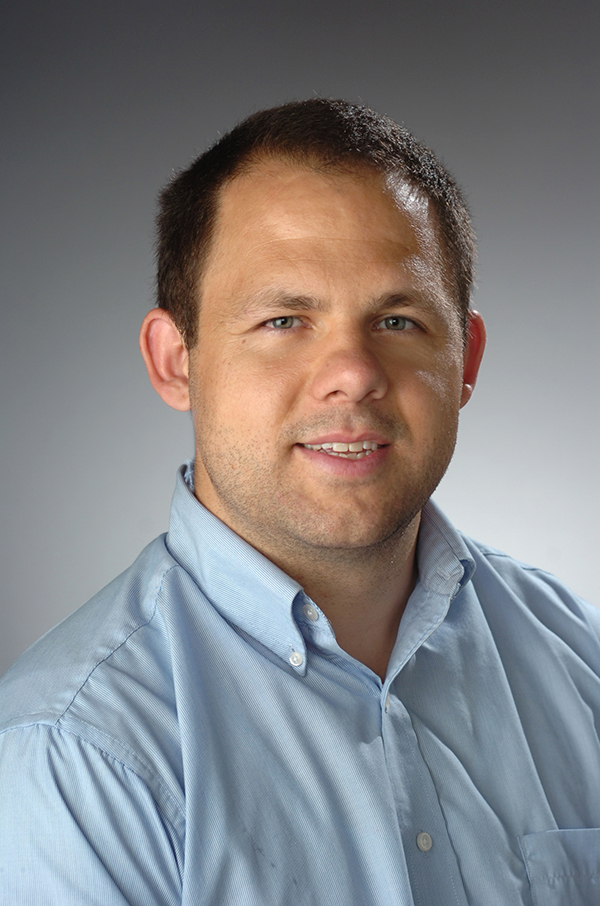Falk College strives to achieve excellence in education not only through good teaching but also through participation in active research. Our students benefit by learning from researchers who are working at the cutting-edge of knowledge, within well-equipped laboratories, and in projects that are both domestic and abroad. We encourage both undergraduates and graduate engagement to achieve not only a rewarding educational experience but also enhanced career opportunities upon graduation. Learn more about the different types of research awards.

Extramural AwardREU: Training Diverse Undergraduate Teams of Veterans and Non-Veterans to Conduct Trauma Research with Veterans, NSF
Kenneth James Marfilius | Bryce Hruska | Brooks B. Gump | Katherine McDonald | Tracey Musarra Marchese |Undergraduate Trauma Research Training, a National Education for Undergraduates (REU) program, is a National Science Foundation-funded joint effort between Syracuse University, SUNY Oswego, and SUNY Upstate Medical University. The objective is to train student veterans and non-veterans to conduct trauma-related research with veteran participants. . .
Learn more about this research.

2022-2023 Falk Tenure-Track Assistant Professor Seed Grant AwardPsychological and Biological Effects on Child Development
Psychological and biological stressors such as poverty, parental mental illness, and environmental toxicants influence child health and development.
Learn more about this research.

2020-2021 SU CUSE GrantAssessing Pyrethroid Exposure and Risk of Cardiovascular and Neurocognitive Disease in a Sample of Syracuse Children
Pyrethroids are the most commonly used insecticides in the world today. Exposure above the level of detection is common, and the potential health impacts of pyrethroid exposure are severe. We will utilize funding from the CUSE Grant to test 300 urine samples from the Environmental Exposures and Child Health Outcomes (EECHO) for pyrethroid metabolites.
Learn more about this research.

2019-2020 SU CUSE GrantEnvironmental Exposures and Child Health Outcomes 2 (EECHO2)
Cardiovascular disease (CVD) remains the leading cause of death in the United States and disables 10 million Americans each year, and literature demonstrates an association between metals (e.g., lead) and CVD risk. Supported by our most recent R01, we finished recruitment of 297 children in a study being named the “Environmental Exposures and Child Health Outcomes” (EECHO) study. EECHO considered the cross-sectional association between Pb exposure and cardiovascular outcomes in 9-11-year-old children.
Learn more about this research.

Extramural AwardRacial Differences in Arterial Stiffness and Cerebral Function
Falk Family Endowed Professor of Public Health, Brooks Gump is a co-investigator working with primary investigator, Kevin Heffernan and co-investigator Tiago Barreira from the Falk College department of Exercise Science on the project Racial Differences in Arterial Stiffness and Cerebral Function funded by the National Institute on Minority Health and Health Disparities/NIH/DHHS for $154,000. There are well documented racial differences in cardiovascular disease (CVD) risk, including hypertension, heart attacks, and strokes. These CVD risks are associated with underlying racial differences in systemic vascular functioning that may manifest as subclinical changes early in life. Recent evidence suggests that these vascular changes may have detrimental effects on the brain. The study will consider racial differences in vascular functioning and associated brain blood flow and cognitive functioning.
Learn more about this research.

Extramural AwardVacationing and Health Study
Recent years have seen a decline in the American Vacation with many workers in the United States failing to fully utilize the paid time off from work that is available to them. The Vacationing and Health Study is a one-year project funded by Project Time Off that aims to examine the psychological, social, and physical well-being changes that occur as a result of vacationing as well as the potentially costly effects of not taking time off from work. The study consists of three appointments at Syracuse University. All three appointments involve a venous blood draw, questionnaires regarding stress and psychological functioning, a blood pressure and heart rate fluctuation reading, and body measurements (such as waist circumference) as well as a hair sample.
Learn more about this research.

Extramural AwardThe Syracuse Lead Study
The Syracuse Lead Study, funded by the National Institutes of Health, will examine environmental toxins that collect in the human body, such as lead, to understand their impact on stress response and cardiovascular health. By identifying cardiovascular risk factors, this research study will offer valuable information to improve child and adult health in communities throughout the country. The Syracuse Lead Study is a four-year project focused on children ages 9, 10 or 11, who live in the 13202, 13203, 13204, 13205, 13206, 13207, 13208, 13210, 13244 zip code areas and identify their race as black or white.
Learn more about this research.
